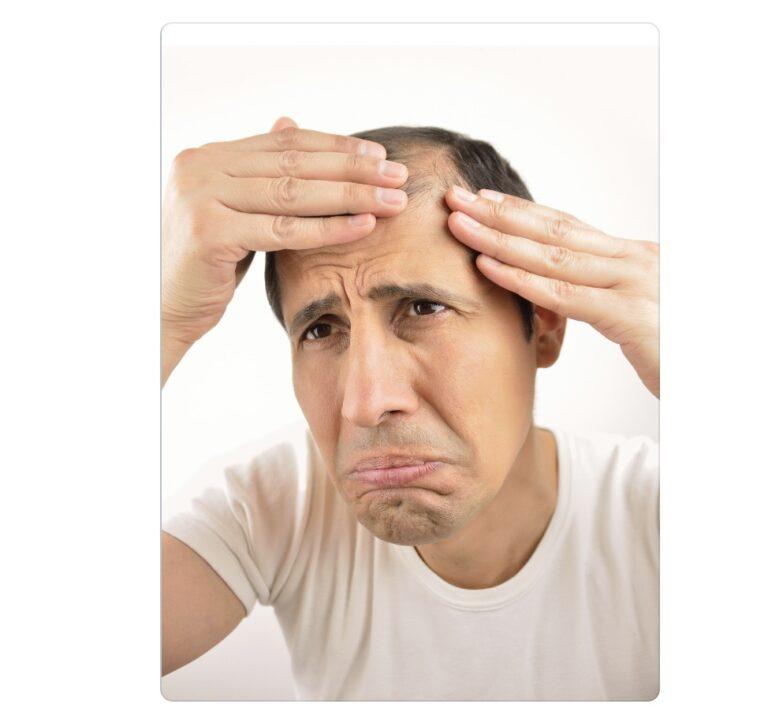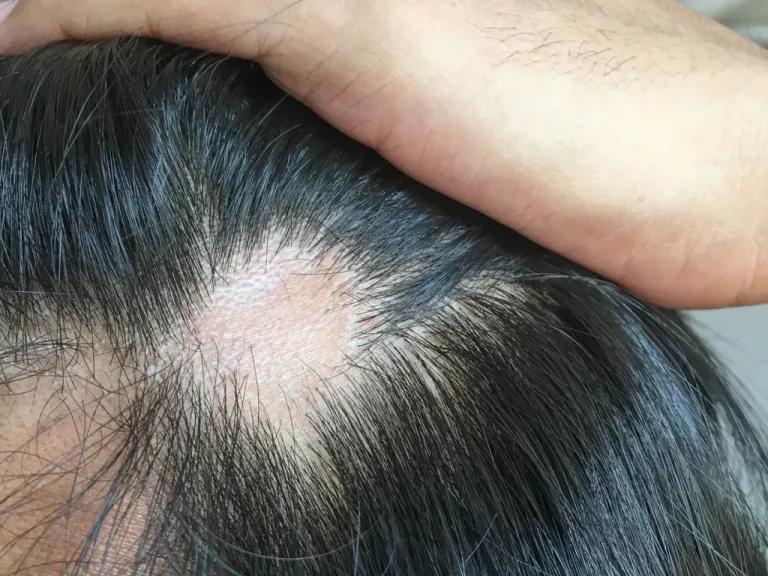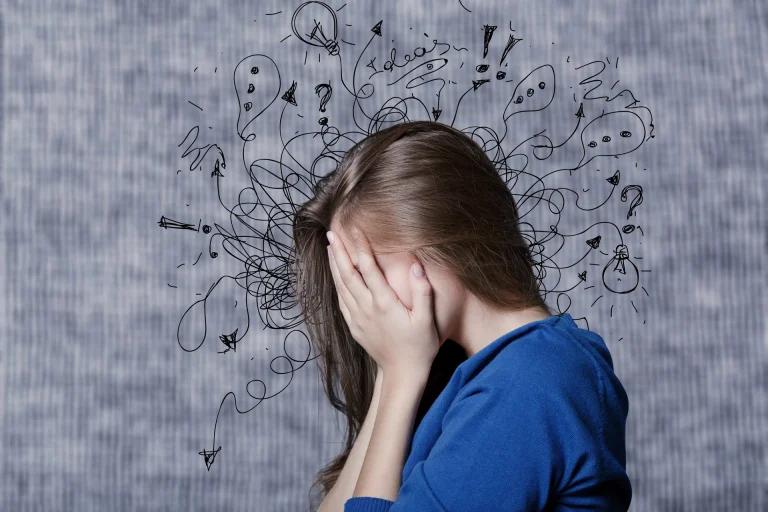
Stress can build up for many different reasons, but can it cause hair loss? It may sound like a made-up fact, but stress-related hair loss is very real. The irony is that losing your hair in itself can be a very stressful experience, so many men fall into a vicious cycle. The good news is that hair loss from stress is rarely permanent, so long as you can control or manage whatever it is that’s putting you under pressure. This guide will give you the facts on stress and hair loss to help you bounce back.
The link between stress and hair loss
We shed between 50 and 100 hairs a day, which is just a small number compared to the other 150,000 hairs on your scalp. Problems occur when this hair doesn’t grow back. If stress is causing your hair to fall out, you may have what’s known as telogen effluvium. This is when the body releases high amounts of the stress hormone cortisol. It’s what gives us our fight or flight response, which is why it’s common to feel on edge when you’re stressed. Unfortunately this process causes a hormonal imbalance that temporarily turns off your hair follicles and pushes them into a ‘resting phase’. This resting phase happens while your body deals with whatever threat it’s detecting. In this case, stress.
Different types of stress-related hair loss
Telogen effluvium isn’t the only cause of stress-related hair loss. Some men may find that stress causes problems with their immune system which then attacks the hair follicles; some even uncontrollably pull their hair out themselves. We’ll explain more in this section.
Alopecia Areata
There’s a good chance you’ve heard of alopecia. If you haven’t, it’s when you begin to lose hair from separate parts of your scalp. This is different from male pattern baldness, which often starts at the crown or recedes from the forehead. There are different types of alopecia, but the one we’re concerned with is alopecia areata. If you suspect alopecia areata you’ll likely notice coin-shaped patches around your scalp and beard area.
Alopecia areata is triggered by inflammation, brought on by complications with your immune system. It’s what we call an autoimmune disease: the body’s natural defenses get confused and begin attacking healthy cells. Alopecia areata is more common in people going through severe stress. That could be from trauma, injury or a sudden death. We all manage stress in different ways and we all have methods of coping, although some can be more harmful to your recovery than others.
Trichotillomania
You’ll probably be aware of trichotillomania without having ever known the name. Trichotillomania, or trich, is a mental health condition that causes people to pull their hair out. Often a person might pull their hair out as a direct response to a stressful situation or they might not be aware that they are doing it. The reasons for trich are fairly unknown, but doctors liken it to the imbalance of brain chemicals that causes OCD.
How to know if your hair loss is caused by stress
As well as obviously feeling stressed, there are many other tell-tale signs to be aware of if you experience hair loss. For starters, hair loss from stress is more sudden and likely to occur in random places of your scalp. Male pattern baldness, which is often hereditary is a more gradual process. You may notice your hair thinning out over several years or your father may have gone bald or receded at a similar age as you.
What if you were stressed several months ago but aren’t stressed now? Many men say they’ve begun losing hair weeks, months or years after feeling stressed. That’s because the hair loss cycle isn’t immediate. You may have to wait several months for your hair to grow back naturally or in the worst circumstances several years, which is why many men opt for medication. We’ll explain this in more detail later on.
Common questions about stress and hair loss
1. Can stress cause hair loss and will it grow back?
The answer to both questions is yes. The three main conditions that cause stress related hair loss are telogen effluvium, alopecia areata and trichotillomania. Thankfully, hair loss from stress is usually temporary.
2. Can stress and anxiety cause hair loss?
Yes. When we feel anxious our bodies go into their fight or flight mode, which triggers the hormone cortisol. This process places the scalp in a resting period. As a result, the hair that’s shed isn’t replaced, which leads to thinning or balding.
3. How do you stop hair loss from stress?
The best way to stop stress-related hair loss is to manage whatever it is that’s causing you stress in the first place. There are varying levels of stress and everyone differs in how they handle it.
4. Can stress cause bald spots?
Severe stress can cause alopecia areata, which often leaves bald spots in different parts of the scalp. This is due to inflammation brought on by your immune system. Other hair loss is categorized by thinning or hair simply falling out in large chunks.
Managing your stress and hair loss medication
Because stress is so common there are multiple options available to get you back on track. The first place to start is a visit to your doctor, as they can refer you to a specialist therapist. If you’re not prepared to go down this route, then the other most effective way to cope with stress is to open up. Speaking to friends or family can really help. When we find ourselves in a stressful situation we have a tendency to think and act irrationally. Speaking to someone that’s less involved is often the best way to get perspective and clarity on a difficult situation.
As for hair loss medication, the most effective treatment is finasteride, which is also available under the brand name Propecia. Finasteride works by inhibiting the sex hormone dihydrotestosterone (DHT), which is a common cause of hair loss in men who are born more sensitive to DHT. We also offer minoxidil (also sold under the brand name Rogaine), which helps aid hair regrowth. Remember, stress is temporary and so is stress-related hair loss. Hang in there.
Sources
NowPatient has taken all reasonable steps to ensure that all material is factually accurate, complete, and current. However, the knowledge and experience of a qualified healthcare professional should always be sought after instead of using the information on this page. Before taking any drug, you should always speak to your doctor or another qualified healthcare provider.
The information provided here about medications is subject to change and is not meant to include all uses, precautions, warnings, directions, drug interactions, allergic reactions, or negative effects. The absence of warnings or other information for a particular medication does not imply that the medication or medication combination is appropriate for all patients or for all possible purposes.









